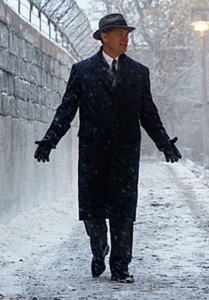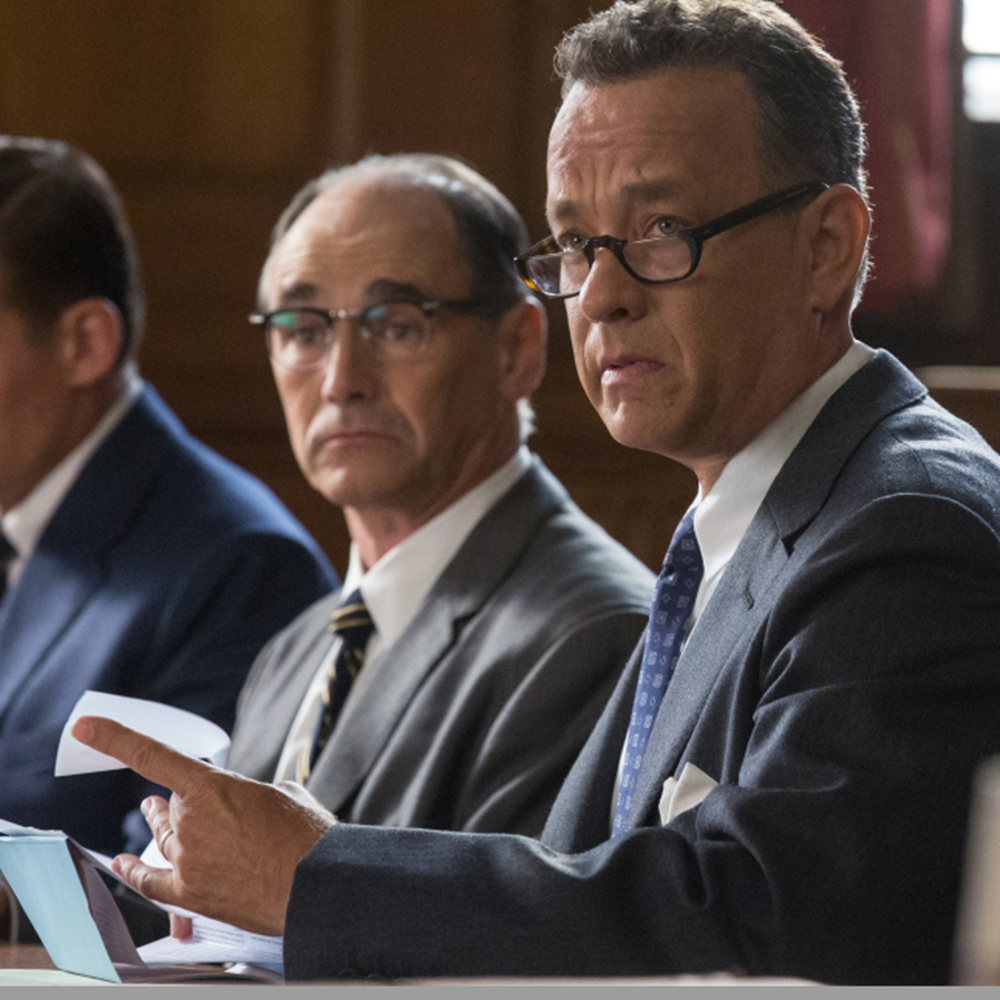
★★★★☆
Many of Steven Spielberg’s films have dared audiences to dream bigger and demand more from Hollywood studios. Movies like “Jaws,” “Raiders of the Lost Ark” and “Jurassic Park” are seen as the quintessential summer blockbusters. However, Spielberg, a special effects pioneer who reshaped the look of the Hollywood blockbuster, has never been confined to making movies about terrified beachgoers or dinosaurs; some of his best films are historical dramas such as “The Color Purple” and “Schindler’s List,” films that won just as many if not more accolades for their unyielding and honest portrayals of sexism, racism and anti-Semitism.
“Bridge of Spies” is Spielberg’s 27th feature film. It was written by Joel and Ethan Coen, responsible for critically acclaimed films such as “Fargo,” “No Country for Old Men” and “True Grit.” It also marks his fourth film collaboration with Tom Hanks. And it does not disappoint. It is everything a Spielberg film should be, and transcends any generic blockbuster film with its depth and emotion.
Set during the peak of the Cold War, “Bridge of Spies” revolves around James Donovan (Tom Hanks), a Brooklyn insurance lawyer who is recruited by the CIA to negotiate an off-the-record trade between the United States and the Soviet Union, the retrieval of a CIA U-2 pilot shot down by Soviet forces during a stealth mission.
In return for Francis Powers (Austin Stowell), the Soviets want Rudolf Abel (Mark Rylance), a KGB agent who was arrested for espionage in New York City. Donovan travels to East Berlin to negotiate with Russian officials just months after the Berlin Wall was built.
“Bridge of Spies” exemplifies the stellar writing for which the Coen brothers are known.Not only is the dialogue is sharp and witty, but the Coen brothers are also able to adapt a true story without stuffing it with plot clichés that would turn a remarkable story into predictable pablem.
Spielberg delivers as storyteller despite audiences’ understandably high expectations for any film of his.
Enhancing the Coen brothers’ powerful screenplay is Hanks’ seasoned acting, characterizing James Donovan as an affable, 1950s everyman who is thrusted, along with his family, into the harsh politics of the Cold War.
Spielberg and Hanks, both esteemed veterans in their respective fields, come together in a film that is equal parts emotion and suspense. Furthermore, some of the best scenes in “Bridge of Spies” come from Hanks’ chemistry with Rylance. One would not expect Donovan, a Brooklyn lawyer, and Abel, a Russian spy, to complement one another, but Hanks’ dry delivery is enhanced by Rylance’s deadpan one-liners. These comedic moments alleviate stress for the audience and add a layer of sincerity to Abel, who is somewhat of a pariah in the United States.
The film is not your typical James Bond spy thriller. There are no diabolical antagonists who serve as perfect foils to the idealistic and ethical Donovan.
Instead, Donovan must navigate the intricate geopolitical world of the Cold War that has just taken a sharp turn toward conflict. Donovan finds himself travelling between East and West Berlin with little support from the CIA and no diplomatic power on behalf of the United States.
The audience finds itself uneasy and vulnerable as Donovan walks along the cold streets of East and West Berlin, unsure of his safety or the fate of the captured pilot Powers.
Spielberg chooses to examine the ramifications of the Cold War through the eyes of a family man — how the idea of nuclear war terrifies Donovan’s children and how the fear of the Soviet Union and isolated local communities contributed to a heightened sense of paranoia across the country.
The film is emotive and intense but incredibly entertaining, as all Spielberg films are. “Bridge of Spies,” though a historical drama, masterfully balances the United States’ diplomatic war abroad with its domestic struggle.
“Bridge of Spies” is not just Oscar bait for Spielberg and Hanks. In all likelihood, it will join the pair’s long list of classics.




















